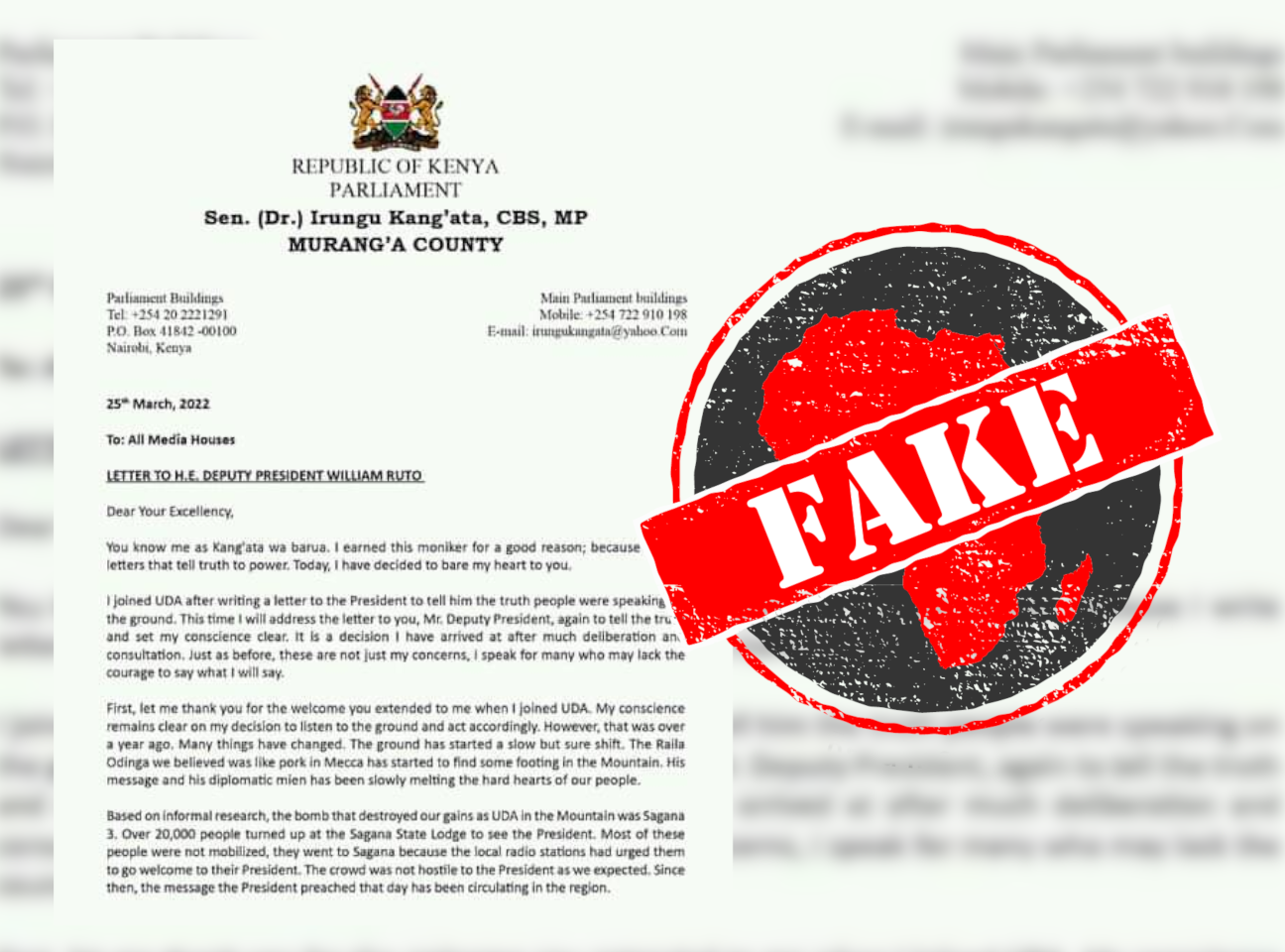A letter seemingly by Kenyan senator Irungu Kang’ata, warning deputy president deputy president William Ruto about his waning popularity in the Mount Kenya region, is doing the rounds on Facebook.
“Mount Kenya” is a political construct of communities in the Mount Kenya region, specifically the Kikuyu, Meru and Embu.
The letter is dated 25 March 2022 and addressed to “all media houses”. It’s titled: “LETTER TO H.E. DEPUTY PRESIDENT WILLIAM RUTO”.
“Many things have changed,” the letter reads. “The ground has started a slow but sure shift. The Raila Odinga we believed was like pork in Mecca has started to find some footing in the mountain. His message and his diplomatic mien has been slowly melting the hard hearts of our people.”
The letter claims Ruto’s United Democratic Alliance (UDA) party lost popularity after president Uhuru Kenyatta hosted the Mount Kenya community at the Sagana State Lodge on 23 February.
In the meeting, Kenyatta attacked Ruto and praised Odinga, leader of the opposition Orange Democratic Movement and once the president’s fierce rival.
But did Kang’ata really write the letter? We checked.

Ruto will get ‘90% of Mt Kenya votes’
A sign that the letter may be fake is that no credible media outlet has reported on it. Kenya is headed to the polls on 9 August, so such a letter would be newsworthy.
On 25 March Kang’ata posted the letter on his verified Twitter account, stamped “FAKE”.
Dr William is on course to get 90% of Mt Kenya votes. pic.twitter.com/6GqVx6wMZS
— Irungu Kang'ata (@HonKangata) March 25, 2022
“Dr William is on course to get 90% of Mt Kenya votes,” he tweeted.
Republish our content for free
For publishers: what to do if your post is rated false
A fact-checker has rated your Facebook or Instagram post as “false”, “altered”, “partly false” or “missing context”. This could have serious consequences. What do you do?
Click on our guide for the steps you should follow.
Publishers guideAfrica Check teams up with Facebook
Africa Check is a partner in Meta's third-party fact-checking programme to help stop the spread of false information on social media.
The content we rate as “false” will be downgraded on Facebook and Instagram. This means fewer people will see it.
You can also help identify false information on Facebook. This guide explains how.





Add new comment